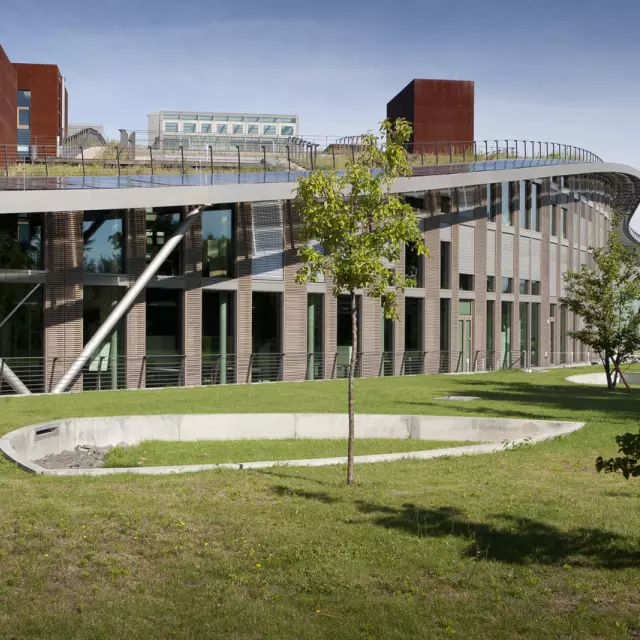Berlin - City of Science
Berlin's universities
As one of Europe's leading centres of science, Berlin is known above all for its first-class research institutions and renowned universities. With four universities, numerous universities of applied sciences and over 70 non-university research institutions , the city offers a perfect environment for scientists and students. In addition, institutions such as Charité Berlin, the Max Planck Institute and the Helmholtz Centre attract international researchers to the Spree. At the same time, Berlin is an important hub for start-ups and companies in the technology sector. One outstanding example is the Berlin district of Adlershof, which is home to numerous research institutions and high-tech companies and has established itself as one of the most successful high-tech locations in Europe.
The close networking of science, business and politics in the capital creates optimal conditions for forward-looking projects and co-operations.
This innovative environment and the appropriate infrastructure with locations such as the CityCube Berlin or the EUREF-Campus make the city a top location for high-calibre science congresses. The capital's attractiveness for scientific events of all kinds is obvious: conferences and congresses in the ‘Medicine, Science and Research’ sector occupy fourth place in the 2023 congress statistics. The top medical congress events have chosen the city on the Spree as their venue: The World Health Summit brings over 1,800 experts from around 90 nations to Berlin every year - including Nobel Prize winners, health ministers and CEOs of leading international companies. In addition, the congress of the European Society for Medical Oncology (ESMO) will be organised in Berlin for the first time in 2025. The event is one of the most important international interdisciplinary cancer congresses and will take place at the Messe Berlin exhibition centre with 25,000 to 30,000 participants.
More about the science metropolis Berlin at www.berlin-sciences.com


